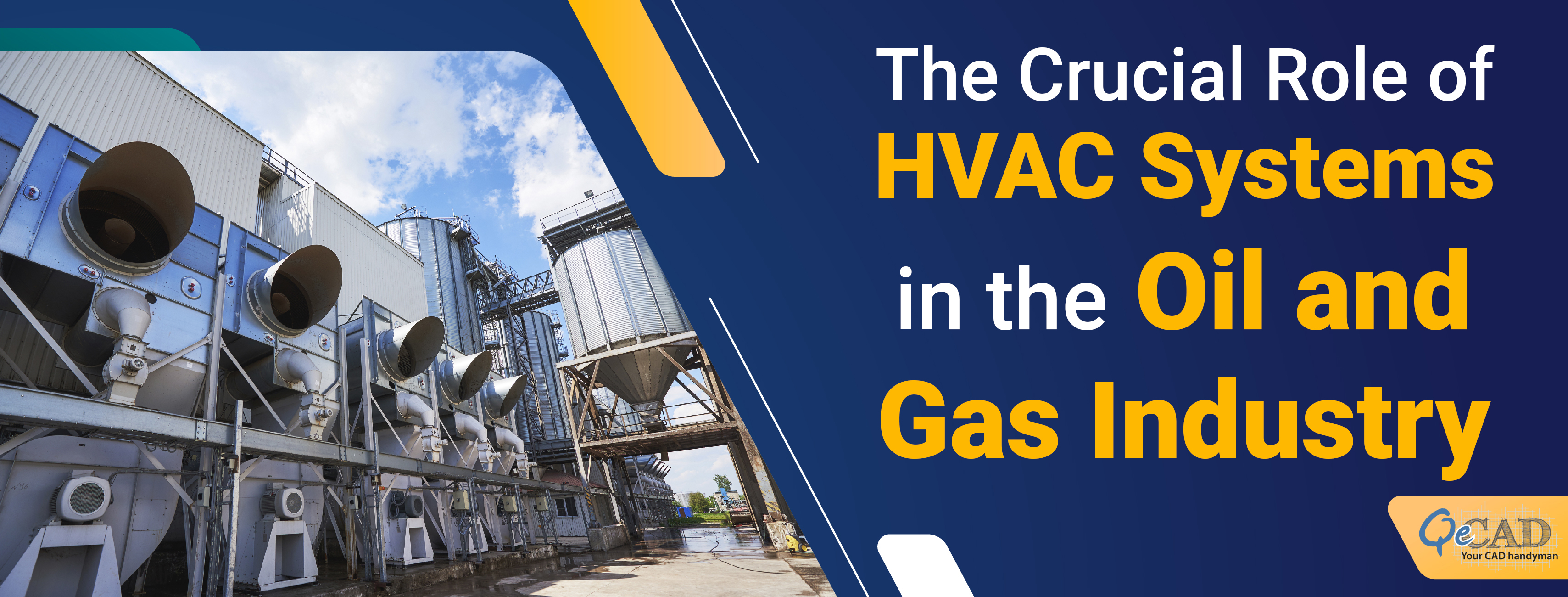
Introduction
The Oil and Gas sector stands as a fundamental pillar in the worldwide landscape of energy generation and distribution. The intricate processes involved in extracting, refining, and transporting these precious resources generate various challenges, including maintaining optimal working conditions for equipment and personnel. In this context, Heating, Ventilation, and Air Conditioning (HVAC) systems emerge as indispensable tools that play a pivotal role in ensuring industry safety, efficiency, and comfort.
The Significance of HVAC Systems in the Oil and Gas Industry
1) Personnel Safety and Comfort:
The oil and gas industry often operates in extreme onshore and offshore environments, subjecting workers to severe weather conditions. HVAC Systems ensure that indoor workspaces remain habitable by maintaining their quality of air, temperature, and humidity. Proper climate control prevents health risks associated with extreme temperatures, reduces fatigue, and enhances the overall well-being of workers, leading to increased productivity by utilizing enhanced HVAC BIM Services.
2) Equipment Performance and Longevity:
The extraction and refining processes in the oil and gas industry generate substantial amounts of heat. Without efficient cooling systems, the equipment can overheat, leading to malfunctions, breakdowns, and even catastrophic failures. HVAC systems play a critical role in dissipating excess heat, maintaining optimal operational temperatures, and prolonging the lifespan of machinery.
3) Corrosion Prevention:
Corrosion is a significant concern in the oil and gas industry due to the harsh chemical environments in which equipment operates. HVAC systems contribute to corrosion prevention by maintaining relative humidity levels, preventing moisture accumulation, and minimizing the risk of rust and degradation.
Facts and Figures Supporting the Scenario
1) Energy Consumption: As per the U.S. Energy Information Administration (EIA), 2019, the industrial sector accounted for approximately 33% of total U.S. energy consumption. The oil and gas industry holds a substantial share in this sector due to its energy-intensive operations. HVAC systems contribute significantly to this consumption by heating and cooling to maintain the required working conditions.
2) Environmental Impact: The oil and gas industry’s demand for cooling and ventilation results in a significant carbon footprint. The International Energy Agency (IEA) report estimated that HVAC systems are responsible for nearly 10% of global electricity consumption and contribute to approximately 15% of global greenhouse gas emissions. This underscores the importance of adopting energy-efficient HVAC technologies to mitigate environmental impact.
3) Economic Impact: HVAC failures in the oil and gas industry can lead to expensive downtime, repairs, and even accidents. According to a report by the American Society of Mechanical Engineers (ASME), equipment failures caused by poor HVAC maintenance can result in losses of millions of dollars annually. This highlights the economic significance of reliable HVAC systems in preventing costly disruptions.
4) Offshore Challenges: Offshore drilling platforms face unique HVAC challenges due to exposure to saltwater, harsh weather conditions, and limited space. These platforms require specialized HVAC designs that can withstand corrosive environments and ensure the safety and comfort of personnel working in such demanding locations.
5) Technological Progression: The oil and gas industry has adopted innovative HVAC technologies to enhance efficiency and reduce environmental impact. For example, variable Frequency Drives (VFDs) enable better control over HVAC system components, resulting in up to 35% energy savings. Advanced monitoring and control systems also allow real-time adjustments, optimizing performance and energy consumption.
6) Regulatory Adherence: The oil and gas sector is governed by rigorous health and safety regulations. Proper HVAC systems are crucial for compliance with air quality standards and worker protection regulations. Failing to meet and fulfill these standards can lead to legal consequences, financial penalties, and damage to a company’s reputation.
Conclusion
In the complex landscape of the oil and gas industry, HVAC systems emerge as silent yet indispensable heroes. Their role in ensuring personnel safety, equipment performance, and operational efficiency cannot be understated. By providing optimal working conditions using accurate MEP Drafting Services, preventing equipment failures, and mitigating environmental impact, HVAC systems contribute to the sustainability and success of the industry.
As technology continues to evolve, adopting energy-efficient HVAC solutions becomes imperative. The industry’s commitment to reducing its carbon footprint while maintaining operational excellence can be exemplified by investing in innovative HVAC technologies, optimizing maintenance practices, and integrating sustainable design principles.
In the quest for safe, efficient, and environmentally conscious operations, the oil and gas industry must recognize HVAC systems as strategic assets that warrant continuous attention, investment, and innovation.
